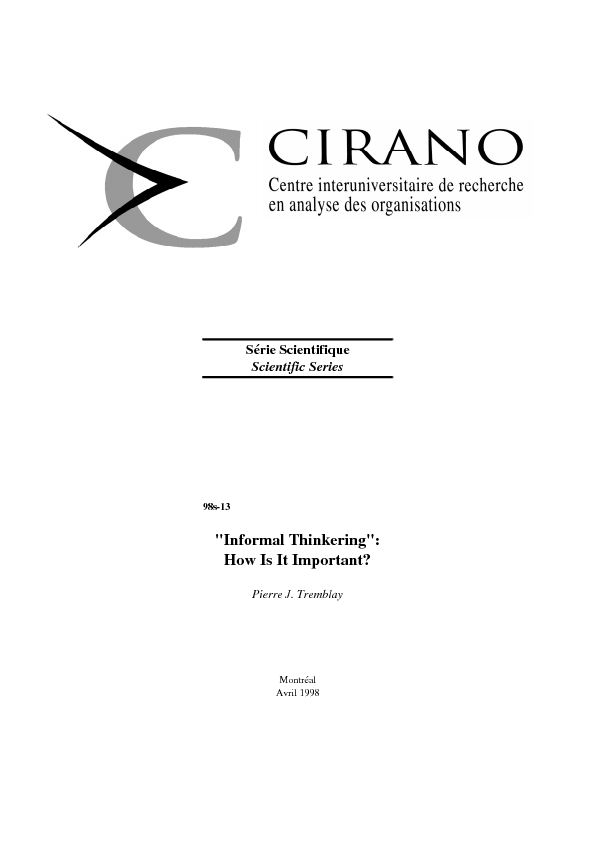Informal Thinkering: How Is It Important?
This paper examines innovation processes or technical change-generation processes at the firm level. It emphasizes the notion that the element of technical and technological change that is a determinant of productivity growth is strongly induced by internal factors related to the firm's behavior, via investment in R&D but also, and importantly, on the basis of informal thinkering within plants. This research is unique in that it seeks first, to examine the pattern of technical change and its ensuing productivity growth, and second, to make a comparison between an industrialized and an industrializing country. This comparison is conducted by empirically comparing mills in the pulp and paper manufacturing sector in two countries: Canada and India. The overall analysis is based on direct observations at the mill level, face-to-face interviews and on analysis of mill documentary records. This paper highlights the importance of managing change as a continuous process. The introduction of intermittent, step-jump technical changes contributed little to explain the differences in performance between the mills. Much more important are (i) the continuing sequences of smaller investments in technical change, often linked to the larger step-jumps, and (ii) the existence of steady streams of changes and improvements that are unrecorded as capital expenditure
[ - ]




